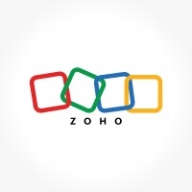

Zoho Analytics and Salesforce Einstein Analytics compete in the business analytics and intelligence solutions category. Zoho Analytics has the upper hand due to its ease of use and pricing, offering flexibility and integration at a lower cost.
Features: Zoho Analytics integrates seamlessly with Zoho products, offers an intuitive report builder, and supports multiple data sources and APIs. Its automation features improve workflow efficiency. Salesforce Einstein Analytics excels in predictive analysis, offers visually appealing dashboards, and integrates deeply with Salesforce for comprehensive insights.
Room for Improvement: Zoho Analytics can improve its graphical options, data manipulation features, and SQL editor complexity. It lacks some advanced statistical tools and responsive customer support. Salesforce Einstein Analytics needs more transparency in data models, regional customization, and better large data volume handling. The high pricing and mobile compatibility are also concerns.
Ease of Deployment and Customer Service: Zoho Analytics provides deployment options in private, public, and hybrid clouds, offering flexibility. While customer service is generally well-rated, timely support can be an issue. Salesforce Einstein Analytics operates on a public cloud, praised for its Salesforce integration. Customer service is efficient, though faster response times are desired.
Pricing and ROI: Zoho Analytics is reasonably priced, especially when bundled with Zoho One, and offers transparent pricing for good ROI. Salesforce Einstein Analytics is noted for higher costs, justified by its extensive features and CRM integration, but may be expensive for small businesses.
The integration with Zoho People is particularly important because I can access real-time data at any time, including what's happening in the last minute.
After incorporating Zoho Analytics, now all our decisions come from its reviews.
Any time I've integrated customer data using Zoho, I've received great feedback and referrals, and Zoho has gotten me referrals and more customers.
Tech support for Salesforce Einstein Analytics is generally good.
The support team doesn't have full awareness of the system capabilities.
Zoho support provides assistance through live chat to guide us.
If you need help with any issue you face, you can directly call them.
Zoho Analytics can easily adapt to our needs when they grow, and you don't need much knowledge to adapt it; even basic Excel knowledge is sufficient.
You can utilize URL features to redirect users to their records in Zoho CRM or Zoho Desk with just a click.
Zoho Analytics is scalable.
There are certain glitches, especially when the modules are upgraded or when there is a source code update, causing the entire tool to go offline.
A major missing feature compared to Power BI is the ability to create multiple DAX measures or row-level context, which would be useful for showing custom profit and loss statements.
The stability and reliability of Zoho Analytics have been good over time.
The stability and reliability of the product is crucial for optimal performance.
There are certain glitches, especially when the modules are upgraded or when there is a source code update, causing the entire tool to go offline.
There is a learning curve associated with Salesforce Einstein Analytics, particularly since users need to learn a new language.
The collaborative features of Zoho Analytics have faced one issue: they have tried to reduce the sync time with most Zoho applications, but even with CRM, the sync still takes one hour.
While Power BI uses Power Query, an intuitive and powerful tool that allows data manipulation in any way, Zoho Analytics has limitations.
Having to pay for 25 users when only 11 are needed creates an issue with the pricing structure.
A benefit is that the pricing is available online, ensuring there are no hidden costs.
In general, I would rate it as a little bit on the expensive side compared to other available options.
The annual subscription cost of Zoho Analytics is equivalent to about half of the monthly cost of tools such as Tableau or Power BI.
The pricing for Zoho Analytics is actually cheaper than the competitors for the kind of service they provide.
It allows for a personalized customer experience by providing insights.
Their machine learning model, which they have integrated, provides us with accurate data and creates projection maps.
The AI called Zia in Zoho Analytics is extremely useful. Whenever I build a chart or dashboard, I can generate a summary of insights using this AI tool, which is very convenient for both leadership and manager level teams to understand the data concepts.
The best feature is that in the same tool, we can use SQL and business intelligence capabilities.
Regarding integration capabilities, I have found Zoho Analytics' 100+ integrations very effective in consolidating data from various sources.
| Product | Market Share (%) |
|---|---|
| Zoho Analytics | 1.0% |
| Salesforce Einstein Analytics | 1.0% |
| Other | 98.0% |

| Company Size | Count |
|---|---|
| Small Business | 7 |
| Midsize Enterprise | 4 |
| Large Enterprise | 12 |
| Company Size | Count |
|---|---|
| Small Business | 29 |
| Midsize Enterprise | 4 |
| Large Enterprise | 4 |
Salesforce Einstein Analytics is a customer and business analytics platform that’s optimized for mobile use and brings flexible customer analytics to everyone in the company. It works with many types of data, from many data sources, and it can change the way your company answers critical questions. Einstein Analytics allows you to:
Zoho Reports is a powerful, easy-to-use and highly scalable cloud-based reporting and business intelligence platform for small to medium-sized businesses. Its flexible pay-as-you-go pricing model and scope for customization allow businesses to tailor it to their unique needs.
We monitor all BI (Business Intelligence) Tools reviews to prevent fraudulent reviews and keep review quality high. We do not post reviews by company employees or direct competitors. We validate each review for authenticity via cross-reference with LinkedIn, and personal follow-up with the reviewer when necessary.